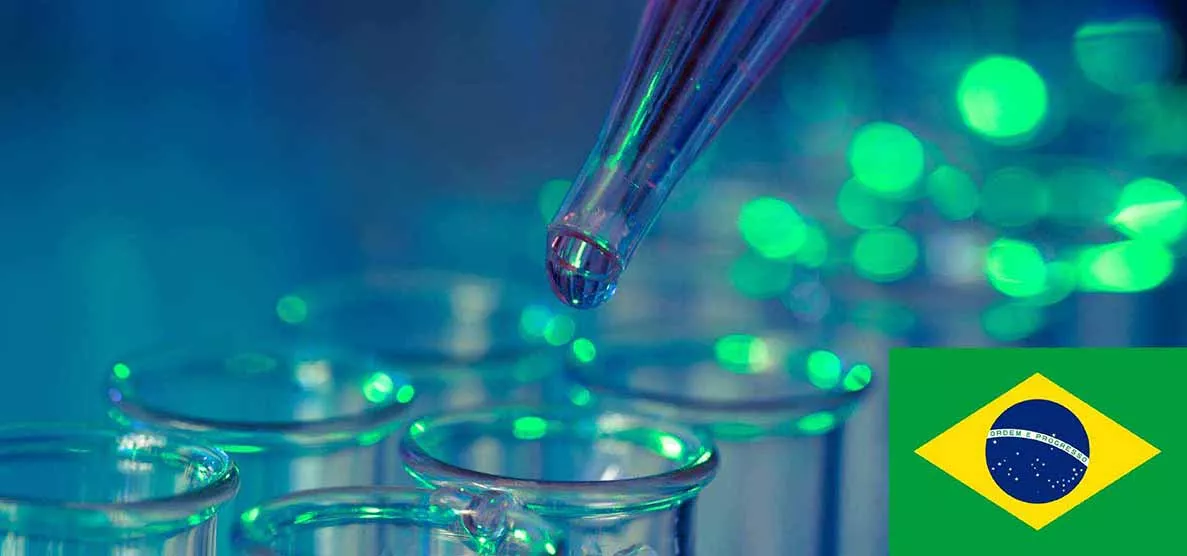
Brazil update: Regulators set deadline for track-and-trace regulation
25 november 2021

Brazil’s regulatory authorities have been busy updating regulations and streamlining processes with the purpose of better managing products sold in the country.
In one example, the Brazilian health agency, Anvisa, has made some important changes to the active pharmaceutical ingredient (API) evaluation procedure. In the past, the API dossiers, known as the drug master file (DMF), were integrated the marketing authorization application dossier and had to be individually analyzed by Anvisa each time they were submitted. As a result, Anvisa sometimes performed several evaluations for the exact same API, used in different products. However, after August 2023, the dossier for APIs will need to be submitted separately by their manufacturer to obtain a suitability certificate (known as the CADIFA), which means, in future, Anvisa will only need to analyze an API once, even when used by different companies. This will bring Brazil in line with processes in other major markets, such as the EU.
A bigger change on the near horizon, however, is the implementation of track-and-trace, aimed at addressing the problem of counterfeit and stolen medicines. From 28 April 2022, companies will be required to put a data matrix code on each unit of medicine. Batch information will be relayed to Anvisa by the manufacturer, then by the wholesaler and pharmacies. The purpose is to track the product throughout the supply chain.
This is a very robust system that has broad industry support. However, companies are concerned about how to implement this complicated process in a very short amount of time. While Anvisa has been discussing track-and-trace for many years, the final track-and-trace regulation was published only very recently, giving companies very little time to prepare their systems and processes.
It’s a large and ambitious project, and, for it to be effective, it must be accessible by every member of the supply chain. For the regulators, it’s a huge amount of work, involving millions of transactions each day – from what companies sell to what is received by the wholesalers and then the pharmacies.
Many large companies have bought the equipment required and are working to ensure they meet the Anvisa deadline. To be ready for implementation, however, companies must install and qualify this equipment and validate processes and systems to start marking their products, and to do this, they will need to ensure they have a team in place that is capable of managing track-and-trace processes.
While the requirement will apply to most products, there are some exceptions, including: over-the-counter medicines, herbal medicines, radiopharmaceuticals, injectable contrast media, medicinal gases, parenteral solutions above 50ml, serums, vaccines and medicines sold to the government, and free samples.
A wealth of expertise
Over the past few weeks, ProductLife Group has explored developments across Brazil and Latin America in general – from the move toward digital submission to new biotech regulations and the growth of biosimilars.
Our team of experienced regulatory affairs professionals – either in the region – in Brazil and Mexico – or in other PLG offices, have their finger on the pulse of the latest developments in these markets. Our team includes:
- Regina Shimizu, a senior regulatory affairs consultant in the LATAM team, Brazil, with more than 30 years of experience in regulatory affairs in both Brazil and France. She has acted as the contact point between affiliates and corporate departments of R&D, production sites and local health authorities.
- Tatiana Melchiori, a regulatory affairs services expert for the LATAM team, based in France. Tatiana is a pharmacist with nine years of experience working for Brazil and LATAM
- Elsa Dias, a regulatory affairs services expert in the LATAM team, based in Portugal. Elsa is a pharmacist with 3 years of experience working for Brazil and LATAM.
- Alicia Aguilar, Global LATAM regional lead, based in Mexico. Alicia is a pharmacist with 20 years of experience in RA activities, including 15 years working in LATAM region.
- Nicole Chaves Petronzi, Regulatory Affairs Specialist, Pharmacist, Portuguese, based in Italy, with 8 years of experience in RA EU & LATAM regions.
- Swaraj Jeerjoodhun, project manager, based in Mauritius. Swaraj has 8 years of experience in regulatory affairs and project management, including 3 years of experience with Brazil RA activities.
- Nivedita Gopaul, project manager, based in Mauritius. Nivedita is a microbiologist with 5 years of regulatory affairs experience, including three years of experience with Brazil RA activities.
By Regina Shimizu
Register to our news and events
Go to our Events to register
Go to our News to get insights
